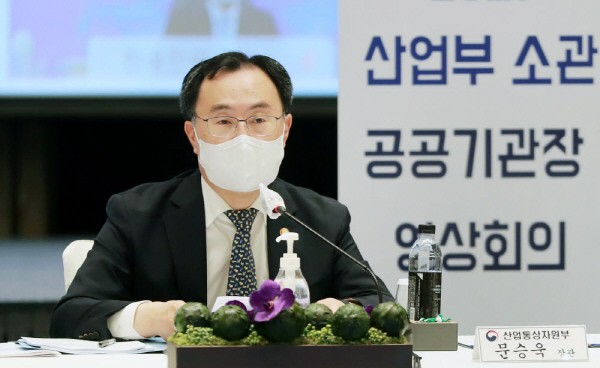Consider the scope of submissions from overseas companies such as TSMC
Excluding customer information after last minute consideration
US Department of Commerce Said "Additional actions required if not

Korean semiconductor companies have submitted semiconductor supply chain information requested by the US Department of Commerce. Most of the sensitive information, including the names of customers, was provided as 'private' to avoid exposure. If key information is missing, the US government may request additional information. The results are noteworthy as Minister of Trade, Industry and Energy Seung-wook Moon is scheduled to discuss this issue with the US government.

On the 9th, Korean semiconductor companies such as Samsung Electronics, SK Hynix, and DB Hitek provided information about the semiconductor supply chain requested by the US Department of Commerce. As the submission was made according to the deadline, they struggled with the scope of information provision until the very last minute. All three companies submitted key information privately to the U.S. Department of Commerce. It is known that trade secrets have been excluded from the submitted materials. A company official said, "In my understanding, only items by field and basic production information are included."
It seems that they were referring to the scope of information provided by foreign companies such as Taiwanese TSMC that submitted data earlier. So far, a total of 67 companies have provided data. Of these, about 40 companies opened them up to the public, but most of them did not include customer information.

Next move of the US government is drawing attention. The US Department of Commerce took a step back, saying that it is okay to submit the current status of each industry instead of company-specific information such as customers. It is interpreted as that they were conscious of the industry backlash. However, the possibility of requesting additional information remains. US Commerce Secretary Gina Raimondo said in a recent interview that she was "optimistic" about companies' information offerings, but said that "if there is not enough data, further action could be needed."
The US Department of Commerce mentioned that if information about the semiconductor supply chain is inadequate, with the President’s authority, they can force the provision of information by invoking the US Defense Production Act (DPA). The US has invoked the DPA about 50 times so far. In 2011, the DPA was activated to investigate the supply and demand of software (SW) and hardware (HW) produced abroad in response to a cyber attack from China. Due to the COVID-19 pandemic in 2020, DPA was also activated for the production of ventilators.

The role of our government has become important. Until now, the scope of the Korean government's movement was not wide, leaving it to the autonomy of private companies. However, 'government-to-government' negotiations are possible when information submission is complete. Minister Moon, who departed for the United States on the 9th, will meet with Minister Raimondo to discuss the submission of semiconductor supply chain information. Based on the data provided by our company, it is known that the situation in which it is difficult to submit additional data such as trade secrets will be explained.
By Staff Reporters Ji-woong Kim (jw0316@etnews.com), Dong-jun Kwon (djkwon@etnews.com)